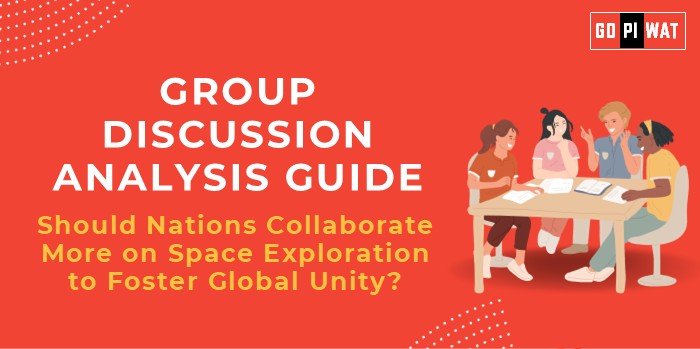📋 Group Discussion Analysis Guide: Should Nations Collaborate More on Space Exploration to Foster Global Unity?
🌐 Introduction to the Topic
📖 Opening Context
Space exploration has long been a symbol of human ambition and innovation. In recent years, initiatives like the International Space Station (ISS) have shown how international collaboration can achieve monumental advancements, fostering both technological progress and diplomatic ties.
📜 Topic Background
The 20th-century space race was driven by geopolitical rivalry, but the 21st century presents an opportunity for cooperation. Programs like Artemis Accords and the European Space Agency’s collaborations demonstrate the potential for unified efforts to explore the cosmos.
📊 Quick Facts and Key Statistics
- 🚀 ISS Participation: 15 nations contributed to the ISS, a $150 billion endeavor proving global cooperation can succeed.
- 🌔 Artemis Accords Signatories: 29 nations have joined the U.S.-led lunar exploration framework as of 2024.
- 🌌 Global Space Economy: Valued at $546 billion in 2023, with expectations to reach $1 trillion by 2040 (Morgan Stanley).
- 📡 Satellite Collaboration: Over 50 countries participate in the International Charter on Space and Major Disasters for satellite data sharing.
- 🌍 Climate Monitoring: 60% of climate-related satellite data originates from multi-nation programs.
🤝 Stakeholders and Their Roles
- 🏛️ National Governments: Set policies, allocate budgets, and represent interests in international agreements.
- 🚀 Private Sector: Companies like SpaceX, Blue Origin, and ISRO engage in cost-effective launches and R&D.
- 🌐 International Organizations: UN Office for Outer Space Affairs (UNOOSA) regulates peaceful uses of space.
- 📚 Academia: Research institutions drive innovation and explore sustainability.
- 👥 Global Community: Citizens benefit indirectly through advancements in communication, navigation, and Earth observation.
🏆 Achievements and Challenges
✨ Achievements
- 🤖 Technological Innovation: GPS, weather satellites, and space medicine.
- 🌍 Global Unity: Programs like the ISS bridge political divides.
- ♻️ Sustainability Initiatives: Collaboration in tracking and mitigating space debris.
⚠️ Challenges
- ⚔️ Geopolitical Tensions: Rivalries between nations (e.g., U.S.-China).
- 💰 Funding Disparities: Wealthier nations dominate decision-making, leaving others marginalized.
- 🪐 Resource Exploitation: Unregulated asteroid mining could create inequalities.
🌍 Global Comparisons
- ✅ Success: ESA fosters seamless collaboration among European nations.
- ⚠️ Challenges: The U.S.-China space rivalry limits bilateral opportunities.
📖 Case Studies
- 🇮🇳🤝🇦🇪 India-UAE Partnership: Mars orbiter missions showcase collaboration between emerging and developed economies.
- 🛰️ ISS: A proven model of joint space exploration for over 20 years.
💡 Structured Arguments for Discussion
- 🛠️ Supporting Stance: “Collaborative space exploration ensures shared knowledge, reduces duplication of efforts, and promotes global unity.”
- 🛡️ Opposing Stance: “National security concerns and unequal benefits create significant barriers to genuine collaboration.”
- ⚖️ Balanced Perspective: “While global collaboration is ideal, frameworks ensuring equity and addressing geopolitical mistrust are crucial.”
🎯 Effective Discussion Approaches
🔑 Opening Approaches
- 🌌 Highlight Collaboration: “With over 15 nations collaborating on the ISS, why not expand this model to other missions?”
- 🌔 Discuss Artemis Accords: “Geopolitical tensions often prevent collaboration, but the Artemis Accords signal a positive shift.”
⚙️ Counter-Argument Handling
- 🔄 Rebuttal: “Addressing mistrust through transparent data sharing and equitable funding mechanisms can mitigate concerns.”
🧠 Strategic Analysis of Strengths and Weaknesses
SWOT Analysis:
- 💪 Strengths: Technological advancements, mutual cost-sharing, and peace diplomacy.
- 🛠️ Weaknesses: Inequitable participation, security concerns.
- 🌟 Opportunities: Resource-sharing agreements, new partnerships in emerging markets.
- ⚠️ Threats: Militarization of space, ethical dilemmas over resource claims.
🏫 Connecting with B-School Applications
📚 Real-World Applications
- 🌍 Managing international partnerships and fostering cross-cultural leadership.
🎓 Sample Interview Questions
- ❓ “How can space exploration align with sustainable development goals?”
- ❓ “What lessons can businesses learn from space collaboration models?”
💡 Insights for Students
- 📈 Leadership, risk management, and innovation strategies from space initiatives.


